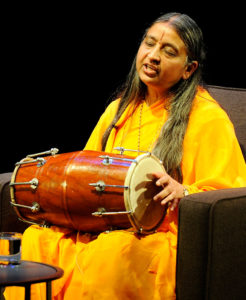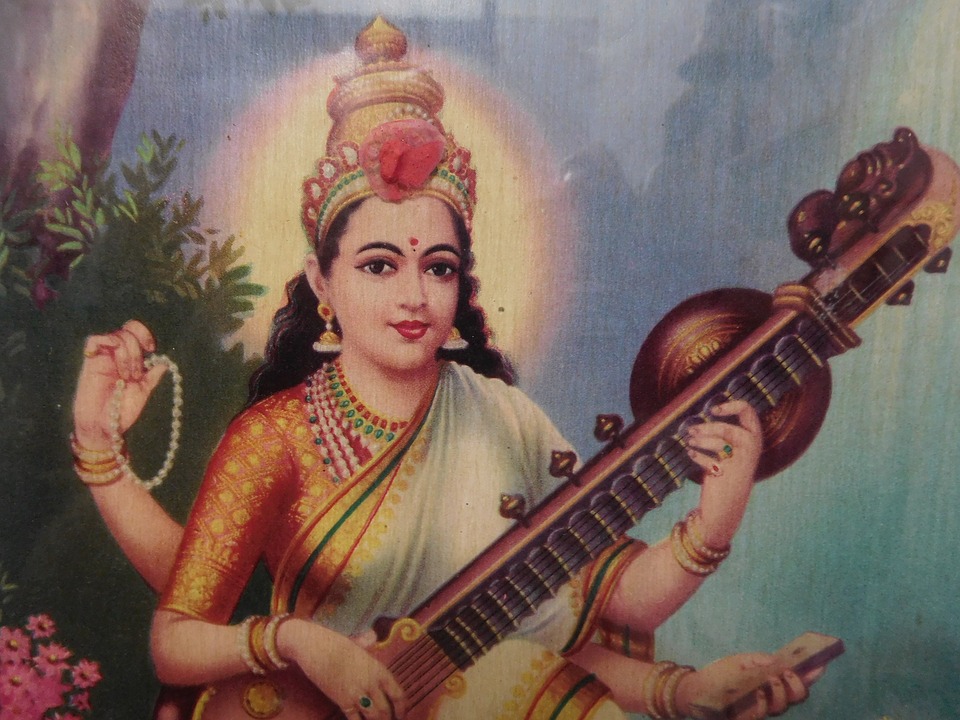Much has been written about the “Hindu mythology”, “its thirty-three crores Gods and Goddesses”, “rituals’ and “traditions”. However, the Hindu or Indian music which owes its origin to Vedic philosophy is a sadly neglected or otherwise misconstrued genre, especially in the eyes of the Westerners.
Traditionally, Indian Classical music has an intricacy and classicism of its own that does not hold mass appeal. Neither does it grab the attention of the uninitiated or the untutored ear. So obviously when the neophyte Indian classical singer performs in foreign shores, he attempts to scale down the complex notes in a manner as to appeal to the Westerners. The element of anachronism is diffused, and the original complex rhythm lost. This dubious proselytizing of the classical and traditional genre has chiefly been responsible for the Western fallacies of Hindu music. Hence the misconstrual of the Bhangra Rap, Ghazal or fusion, as Hindu traditional music.
The Complex musical notes of Indian classical music
However, the Westerners who are diehard Western Classical Music lovers, are increasingly appreciating the complex musical notes of Indian classical music and its eclectic styles and treatments. The melodious appeal is being perceived, if not, the lyrical comprehension.
 The fact that traditional or classical Hindu music is symptomatic of the Vedic philosophy of self-transcendence, self-purification, and propinquity to Divinity and Nature is simply lost upon the Westerners. This is more so because of the manner in which Hindu music is being marketed in Western countries, stripped of its complex notes and juxtaposed with Western instruments. Also, there lacks amongst the Westerner’s proper perception of Vedic philosophy, more often confused with mythology or superstition. Unless there is a proper understanding of the philosophy of Hinduism, there cannot be the proper insight into its various manifestations as in traditional Hindusthani music.
The fact that traditional or classical Hindu music is symptomatic of the Vedic philosophy of self-transcendence, self-purification, and propinquity to Divinity and Nature is simply lost upon the Westerners. This is more so because of the manner in which Hindu music is being marketed in Western countries, stripped of its complex notes and juxtaposed with Western instruments. Also, there lacks amongst the Westerner’s proper perception of Vedic philosophy, more often confused with mythology or superstition. Unless there is a proper understanding of the philosophy of Hinduism, there cannot be the proper insight into its various manifestations as in traditional Hindusthani music.
Again, in this era of crossovers, Hindu music has become a repository of alloyed music genres, popularized by the Indian Film Industry. These have a surfeit of rhythmic music cardinal to their popularity, and rarely win critical acclaim, albeit they have an instant appeal with the Western audience.
A piece of music that sells
Unfortunately, this is the music that sells. It is readily lapped up, as it seems familiar, quite akin to the Hip Hop and Rap. So for no fault of theirs, but because of the upwardly mobile Hindu music stalwarts, the Westerner’s concept of Hindu music is that portrayed by the current Bollywood numbers churned out by the dozen.
So westerners view Hindu or Indian music as represented in international markets light, lyrical pop numbers that are a hallmark of every film made in India. Of course, there are those who view Hindu music as intricately linked with dance. This is the image that has repeatedly been brought before the Western audience, and that is how the Westerners perceive the Hindu music scene.






